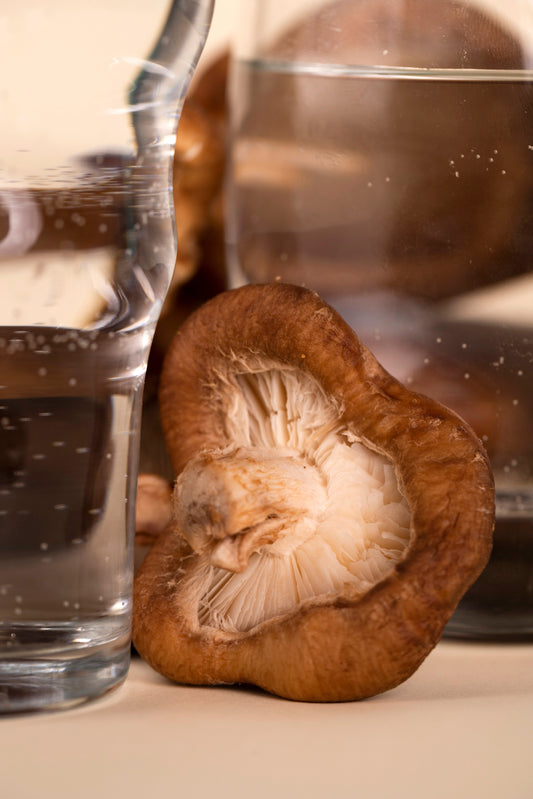Stress is an inevitable part of modern life, affecting millions worldwide. As people seek effective solutions, GABA and ashwagandha have gained popularity for their potential stress-relieving benefits. Here, we explore these two compounds, their mechanisms, benefits, and best practices for use.
Understanding GABA
Gamma-aminobutyric acid (GABA) is a naturally occurring neurotransmitter in the brain. Often referred to as the brain's "main brake," GABA plays a crucial role in reducing neuronal excitability throughout the nervous system. When GABA levels are sufficient, individuals typically experience reduced anxiety, improved mood, and better sleep quality.
Benefits of GABA:
-
Anxiety Reduction: GABA helps calm the brain, reducing feelings of anxiety and restlessness.
-
Improved Focus: By reducing hyperactivity, GABA can enhance focus and concentration.
-
Better Sleep: Its calming effect makes it beneficial for those struggling with insomnia or poor sleep quality.
Supplementing with GABA: Supplements are available and can be taken to boost its levels in the brain. They are often recommended for individuals experiencing high stress, anxiety, or sleep disturbances. It can be taken with or without food, and its effects are generally quick, providing a calming sensation shortly after ingestion.
Understanding Ashwagandha
Ashwagandha, a revered herb in Ayurvedic medicine, helps the body adapt to stress with its adaptogenic properties. The active compounds in ashwagandha, particularly withanolides, contribute to its stress-relieving effects by modulating the body’s stress response and supporting overall well-being.
Benefits of Ashwagandha:
-
Stress Reduction: Ashwagandha helps lower cortisol levels, the body's primary stress hormone.
-
Enhanced Sleep: Its calming properties can improve sleep quality and reduce insomnia.
-
Immune Support: As an adaptogen, it also supports immune function and reduces inflammation.
-
Hormonal Balance: Ashwagandha can enhance hormonal health, particularly by boosting DHEA, a precursor to several important hormones.
Supplementing with Ashwagandha:
Ashwagandha is typically taken in capsule or powder form. The recommended dosage varies, but a common starting point is 500 mg, taken twice daily. You can take it with or without food, but some individuals may experience gastrointestinal discomfort when taking it on an empty stomach.

Comparative Analysis: GABA vs. Ashwagandha
Both offer significant stress-relieving benefits but through different mechanisms and pathways.
Mechanism of Action:
-
GABA: Directly acts as a neurotransmitter, providing immediate calming effects on the brain.
-
Ashwagandha: Works as an adaptogen, helping to balance the body’s stress response over time.
Applications:
-
GABA: Best for acute anxiety, immediate stress relief, and improving focus and sleep in the short term.
-
Ashwagandha: Ideal for chronic stress management, supporting overall hormonal health, and providing long-term benefits to the immune system and cognitive function.
Suitability:
-
GABA: Suitable for those needing quick relief from anxiety and sleep disturbances. It is generally safe for most people, including those with autoimmune conditions.
-
Ashwagandha: Better for individuals seeking a holistic approach to stress management and overall health improvement. However, those with autoimmune conditions or sensitivity to nightshades should exercise caution.
Recommendations and Personalization
According to experts, both can be beneficial, but the choice depends on individual needs and conditions. For instance, you can use GABA for immediate relief from stress and anxiety, while Ashwagandha offers broader, long-term health benefits.
Best Practices for Use:
-
Dosage: Start with a lower dose to gauge tolerance and effectiveness, and then adjust as necessary.
-
Timing: GABA can be taken anytime, though it is often used in the evening to aid sleep. You can take Ashwagandha in the morning and evening.
-
Food: GABA can be taken with or without food, while ashwagandha is best taken with food to avoid gastrointestinal discomfort.
Key Takeaways
✦ GABA for Stress Relief and When to Take
-
GABA is a neurotransmitter that acts as the main brake in the brain, calming our thoughts and helping with issues like irritability, anxiety, and trouble sleeping.
-
You can supplement GABA, and GABA agonists activate the GABA receptor to produce similar effects.
✦ Ashwagandha as a GABA Agonist
-
Ashwagandha helps improve GABA levels for calming and focus.
-
The former reduces stress response effectively with its unique, well-studied compounds.
✦ Ashwagandha Boosts DHEA Levels and Regulates Stress Response
-
Ashwagandha helps boost DHEA, a precursor to hormonal balance and stress reduction.
-
Considered an adaptogenic herb, ashwagandha acts as a thermoregulator, adapting the body to stress levels.
✦ Comparative Benefits
-
Ashwagandha is better for adapting to stress, GABA is better for anxiety and focus.
-
Both help with stress, sleep, and relaxation.
-
You can take GABA anytime with or without food, while the timing for Ashwagandha may vary depending on the individual.
✦ Considerations for Autoimmune Conditions
-
Ashwagandha is in the nightshade family, and about 24% of the population has immune reactivity to nightshades, such as tomatoes, potatoes, and peppers.
-
Some people with autoimmune conditions may react poorly to ashwagandha, leading to potential flaring up of symptoms like eczema and joint pain.
✦ Systemic vs. Localized Effects
-
Ashwagandha has multiple benefits compared to GABA.
-
Other GABA agonists like chamomile can offer similar support.
-
Other adaptogens like Rishi mushroom can be beneficial, especially for people with autoimmunity.
-
Ashwagandha has systemic effects, while GABA has more localized effects in the brain.
-
Ashwagandha may help improve T4 to T3 conversion and reduce inflammation around the thyroid.
-
GABA may not have an effect if the blood-brain barrier is strong and intact.
✦ Experimentation and Dosage
-
Experiment and find the right dosage for GABA and ashwagandha.
-
Start with a small dosage and gradually increase to avoid potential adverse reactions.
-
You can take Ashwagandha for stress relief during intense or prolonged stressful situations.
At CellX, we provide high-quality supplements that are backed by science and tailored to your needs.




